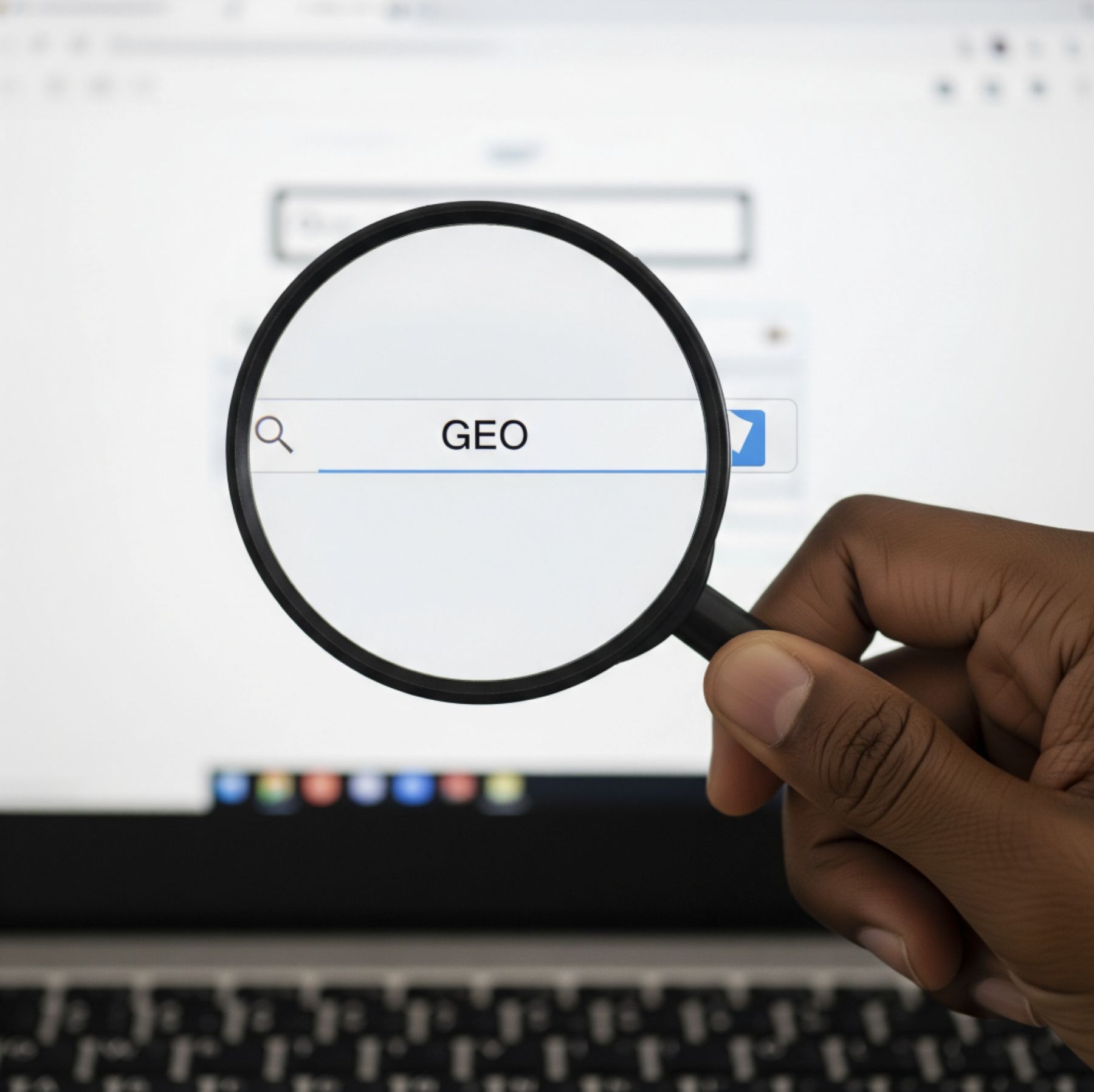By now, you must have noticed that when looking for information via a search engine, you get a box of AI-generated answers to your query. Search engines no longer serve up just a list of links; they are becoming assistants that directly answer users without them having to visit another website.

AI is reshaping how people search for information on the internet – which means that your website’s visibility depends on more than just traditional search engine optimisation (SEO).
Tools such as ChatGPT, Gemini, Claude and Google’s AI Overviews are changing the search experience. This presents a big challenge to businesses: how to stay visible in a world where AI sits between us and our audiences.
From SEO to GEO – welcome to the next frontier
At Flow Communications, we’re seeing more and more clients discovering us through AI tools rather than the traditional Google search engine or social media. People are asking ChatGPT questions like, “Which are the best marketing agencies in South Africa?” – and that’s how our name has been showing up among the answers provided by the large language models (LLM).
Unlike traditional SEO, which is all about climbing to the top of a list of links, generative engine optimisation (GEO) is about ensuring your brand is one of the few sources cited by AI when it generates answers. If you’re not mentioned in that response box, you may as well be invisible.
The fundamentals haven’t changed, though: ranking well still depends on authentic, high-quality, people-first content. Google has been saying this for years, and it’s just as true in the age of AI.
AI isn’t killing search – it’s changing how it works
Some websites have seen traffic dip because people no longer click through to them when AI delivers quick answers. The Nelson Mandela Foundation website, for example, has experienced this shift, as many people now get their information (where Madiba was born, when he became president, etc.) directly from the AI-generated overviews rather than from browsing the site.
But I don’t think this is the end of search; it’s simply an evolution. AI overviews still cite sources – we are seeing them do so across most of our properties – and traffic has remained fairly stable. What’s changing is the balance: you may lose some clicks, but you gain brand authority and visibility when your business is cited as a trusted source in these answers. In many ways, being named by AI as a credible reference carries more weight than a single web visit.
Also, visibility now extends across devices and contexts, not just Google’s first page. It could be Siri reading something aloud, a sentence flashing across your smartwatch or even a response coming from your car’s voice assistant while you’re driving. Your brand now needs to be discoverable across a wider ecosystem of devices and platforms.
So, how do you optimise for generative AI?
Here are a few strategies I recommend, and use myself at Flow, to help brands stay relevant in AI search:
Publish original research
AI values high-quality content typically in the form of surveys, white papers and case studies. This kind of material is often seen as authoritative by AI models and increases your chances of being cited in AI-generated answers.
Use social media strategically
AI tools favour sources that appear unbiased and community-driven, such as Wikipedia, Reddit, TechRadar and HelloPeter.
These are seen as trustworthy by AI because they contain third-party opinions and independent reviews. Having your brand mentioned or listed here increases the chances of being cited in AI-generated answers.
When contributing content to these sites, make sure to engage thoughtfully, offer value and avoid hard selling. You can’t just advertise – you need to build a presence through credible contributions, reviews or listings.
Invest in media and PR
Being featured in news outlets and industry publications boosts your authority. AI also pulls from these sources when compiling responses. Position your brand through thought leadership, press coverage and expert commentary. The more visible you are in the media, the more likely AI is to notice.
Join industry associations
Membership of professional bodies shows legitimacy and credibility. AI tends to reference these organisations when suggesting reputable service providers. Make sure your business is listed on their directories or platforms.
I also encourage businesses to test their visibility by prompting AI tools directly. Ask ChatGPT (or your preferred LLM) who the top companies in your field are and see if you show up.
